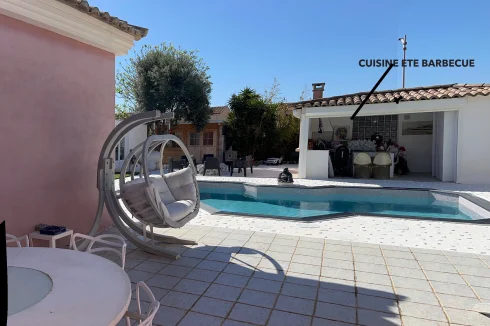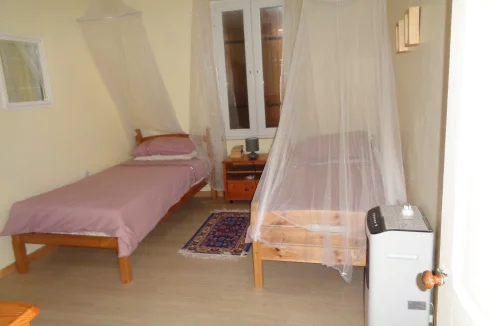Does Off-Peak Electricity Make Sense?
Friday 10 January 2020
As is the case in many other countries, France offers consumers the option of reduced-rate electricity tariffs based upon the time of the day the supply is being used.
This option is referred to as heures pleines/heures creuses (HP/HC), which translates literally to ‘full hours’ and ‘empty hours’.
You might also see it called the night and day tariff (tarif jour/nuit) or the double tariff (double tarif).
Although there are private suppliers who offer off-peak electricity, in this note we only consider the offer provide by the EDF, the State controlled supplier.
EDF and their competitors also offer other tariffs than the principal ones considered here, in which we focus on the issue of off-peak against the standard tariff. In your research you will need to also review these variations.
What are Heures Pleines/Heures Creuses?
If you are on a standard regulated electricity tariff, the amount you are charged per kilowatt-hour (kWh) will be the same for each of the 24 hours of the day. This is referred to as the tarif de base.
However, if you opt for the HP/HC tariff, your energy provider will split the charges per kWh into two categories with a different price for each:
- Low consumption hours (HC) – usually meaning overnight;
- High consumption hours (HP) – the rest of the day.
HP/HC operates by:
- Billing you a lower rate per kilowatt-hour than the tarif de base for the electricity you use during the low consumption hours;
- Conversely, charging you a higher kilowatt-hour rate than the option de base for the power you use during the high consumption hours.
In addition, the standing charge for the tarif de base is lower than that for HP/HC.
Normally, about 8 hours of 24 will be designated as HC and the remaining 16 as HP, but the HP hours are defined by ENEDIS (formerly ERDF, the supply distributor in France) on a local basis. People in the next town or village may have different hours to you and there might also be differences depending upon whether you have a 'Linky' smart meter.
About 50% of French electricity consumers subscribe to the HP/HC tariff, though how many of them obtain a financial advantage from doing so is hotly debated.
Should you change to HP/HC?
It’s tempting to assume that the change to an off-peak tariff is something of a no-brainer.
However, the position is complicated and by no means an obviously beneficial route to go down.
That is because in order to really save money over the tarif de base, you will need to ensure that a significant percentage of your overall electricity consumption, as measured by kilowatt-hours, can be fitted into that 8 hours low-tariff window.
If it cannot, not only might you struggle to save money on your electricity bills, you may find yourself actually paying more than you were previously.
Different bodies and advisory groups quote different figures. The difficulties arise due to the complexities of the different tariffs, different suppliers and the potentially individual consumption patterns of each household.
However, a key starting point is to recognise that on average:
- The annual subscription for an HP/HC contract is substantially higher than a contract of the tarif de base variety;
- The price per kWh under HP/HC during the HP period is around 9% more expensive than for the same hours under the tarif de base;
- The price per kWh during the HC period is approximately 15% lower than the same hours under the tarif de base.
The above figures are based on EDF tariffs and a 9kVA meter supply. They may vary if you are using other providers or a different supply base and they may vary from year to year.
Despite the difficulties of making an assessment, there is a degree of consensus that, in order to save money with HP/HC you would need to use at least 40% (and preferably more) of your total electricity consumption in the off-peak tariff hours.
Accordingly, if you live in a modestly sized property, and central heating is not electric, you are unlikely to be better off using HP/HC.
If, for whatever reason, you cannot shift your heavy load consumption devices (heating, water heating, washing machines, tumble driers and dishwashers) to overnight operation then the same would apply.
In apartments or terraced properties, be cautious about assuming you can run heavy load domestic appliances late in the evenings or overnight. Disputes between neighbours over late noise levels from such appliances are relatively common and they can become a serious issue.
It is also important to note that the market is changing in France and there is now more competition than previously. So, you may need to consider the tariff you use on an annual basis.
If you are unclear, the best way of approaching this whole issue is to ask for a free assessment, which you can do by making contact with an English speaking advisor by ringing 09 69 36 63 83 or visiting your local EDF office. If you are confident enough about the need to change you can do so by simply going on-line from your electricity account.
If you are already on off-peak, but wish to consider whether it would be cheaper to switch to the tarif de base, then, from the bills you have received, calculate the total consumption in a year, and multiply them by the tariff for the tarif de base, to which you should add the modified annual fixed charge. Compare the figure you obtain to the amount you paid in the year on off-peak. You can find information about the different tariffs in our guide below.
How to Access HP/HC Tariffs
The approach here will vary depending upon your existing subscription or what was previously in place when you purchase a property.
Assuming you are currently on tarif de base, contact your existing electricity provider and ask them to explain how you can switch from one to the other. That will be in most cases just a contract change.
In the case of a newly purchased property, if the address was previously on HP/HC then the change should be administrative only.
Although this is usually straightforward, the position may be complicated, depending upon the type of electricity meter already in place.
Broadly speaking:
- If your property has previously been subscribed to HP/HC tariffs and has either an old electro-mechanical spining wheel variety, or an electronic meter, it will probably be able to record and display the tariff you have selected;
- If the property was previously connected to an tarif de base tariff and you wish to switch, then it may need to be replaced;
- Linky meters should be fine.
If your meter needs to be replaced in order to deliver the HP/HC tariff, this will be done through ENEDIS, who will normally change it for a Linky meter, for which there will be no charge.
Your energy supplier may be able to make the arrangements with ENEDIS for you.
Thank you for showing an interest in our News section.
Our News section is no longer being published although our catalogue of articles remains in place.
If you found our News useful, please have a look at France Insider, our subscription based News service with in-depth analysis, or our authoritative Guides to France.
If you require advice and assistance with the purchase of French property and moving to France, then take a look at the France Insider Property Clinic.





